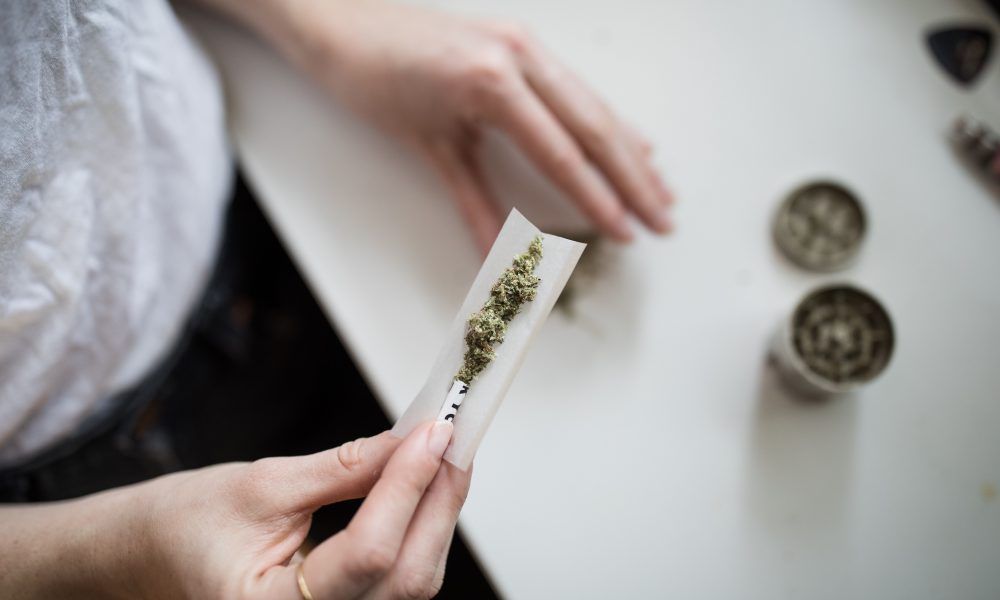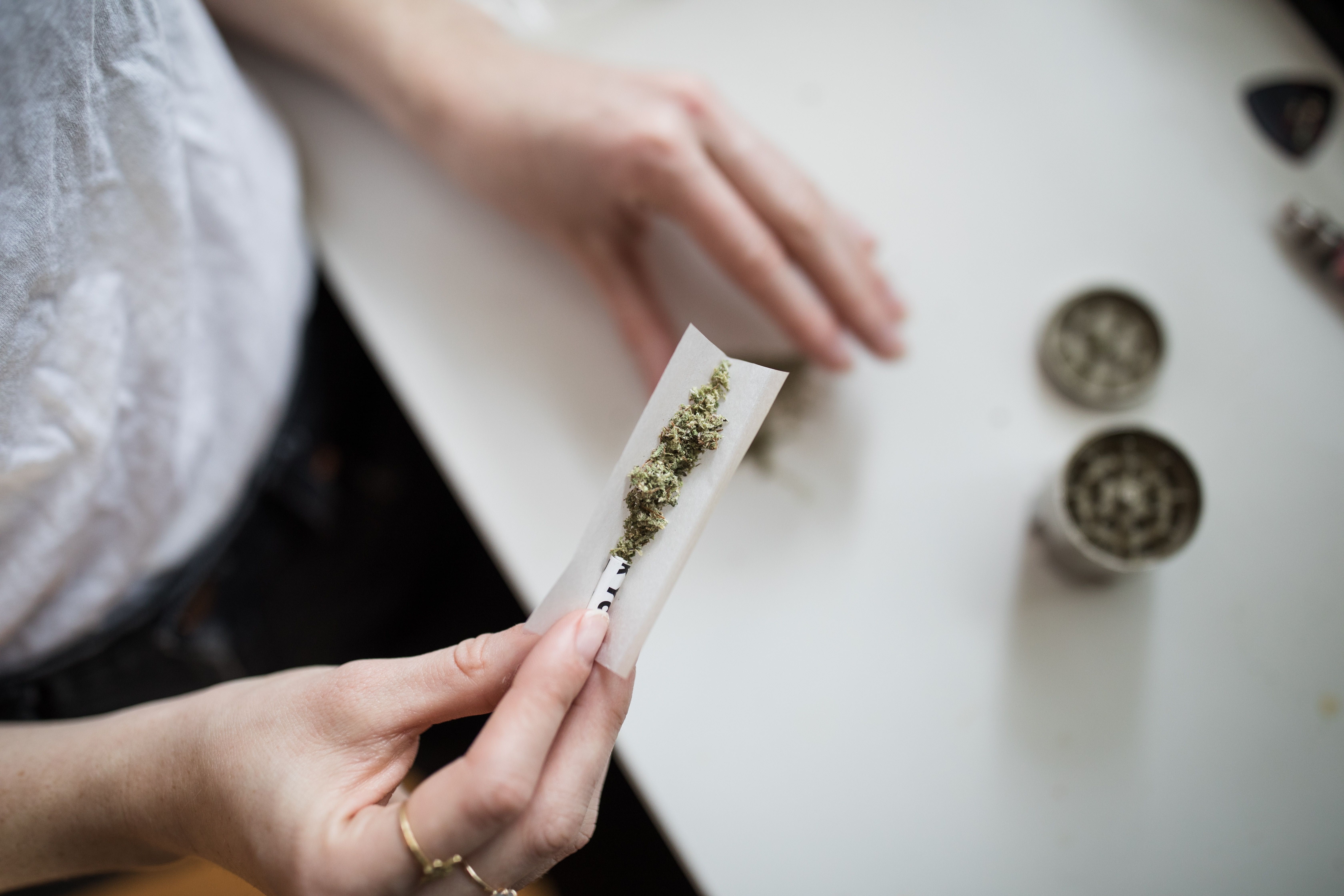This is fucked up...almost posted it in Atrocious Cannabis News thread.....maybe it should be moved there. sigh
House and Senate appropriators have approved large-scale annual spending bills that once again include language to protect state medical cannabis programs, as well as a controversial rider to block Washington, D.C. from implementing a system of regulated marijuana sales.
The Senate and House Appropriations Committee both held markups of Fiscal Year 2024 spending legislation for Financial Services and General Government (FSGG) on Thursday. And the Senate panel, as well as a House subcommittee, have also advanced their appropriations measures for Commerce, Justice, Science, and Related Agencies (CJS).
Aside from the state medical cannabis and D.C. marijuana sales provisions,
House lawmakers rejected a GOP-led amendment to the chamber’s FSGG report that would have called on the federal government to take steps to study other state cannabis regulatory models and develop a national legalization framework.
Lawmakers have consistently attempted to use appropriations measures as vehicles for cannabis reform, with mixed results. Even with Democrats in control of both chambers last session, efforts to expand marijuana protections to all legal states and enact limited cannabis banking reform stalled out following bicameral negotiations.
A rider to protect state medical cannabis programs from federal intervention, meanwhile, has been annually renewed each year since 2014—and appropriators in both chambers agreed again this Congress to keep that language intact in their respective base bills as they advance.
“This bill again contains language preventing the Justice Department from interfering with states that have medical marijuana laws, ensuring that the prescribing and dispensing of medical marijuana in those states is both legal and regulated,” a summary from the Senate Appropriations Committee
says, inaccurately describing the scope of the provision, which does not change cannabis’s legal status but instead restricts the ability of federal officials to enforce the law (and also does not allow for “prescription” of what remains a Schedule I drug).
“Patients and doctors in states that have approved medical marijuana need to know that they are safe from arrest and prosecution by the federal government,” the Senate panel said.
To the disappointment of reform advocates, both the Democratic-controlled Senate and GOP House also maintained a rider in their
respective bills that’s long blocked the District of Columbia from using its local tax dollars to enact a system of regulated adult-use marijuana sales, despite voters in the District approving legalization of possession and home cultivation at the ballot in 2014.
President Joe Biden’s Fiscal Year 2024 budget request that he released in March also
maintained the D.C. rider for the third year in a row.
Separately, while the House under Democratic control has twice added language in prior CJS spending bills that sought to expand protections against Justice Department interference in
all state and tribal adult-use marijuana programs, the chamber did not include that provision in the base bill that advanced through subcommittee on Friday now that Republicans are in charge. The reform also did not appear in the Democratic Senate’s version that advanced on Thursday, and no members offered amendments on the matter.
Also, neither side attempted to add language to the FSGG bill to protect financial institutions from being penalized by federal regulators simply for working with state-legal marijuana businesses. The House
has passed limited appropriations legislation that would have prevented the use of Treasury Department funds to punish banks that service the industry, but it has never been included in the final package. Meanwhile, the much more robust standalone Secure and Fair Enforcement (SAFE) Banking Act is
currently sitting in legislative limbo as Senate Democrats and Republicans spar over a single section on banking industry regulations.
Both House and Senate appropriators also maintained a longstanding rider in their new CJS base bills that safeguards state hemp programs from federal interference.
And there’s language in the Senate CJS report directing the Drug Enforcement Administration (DEA) to continue working with state and local law enforcement on distributing field-testing kits that can distinguish federally legal hemp from marijuana.
“The Committee is aware that DEA has developed field-testing kits that can distinguish between hemp and marijuana on the spot,” the passage says. “The Committee directs the DEA to continue to work to ensure State and local law enforcement have access to this field test technology so they can more efficiently conduct their drug interdiction efforts at the local level. The Committee further directs the DEA to report to the Committee not later than 180 days after enactment of this act, and not less than every 6 months thereafter, until such time as testing kits are deployed to State and local law enforcement in the field.”
Meanwhile, Congressional Cannabis Caucus co-chair Rep. Dave Joyce (R-OH) filed a novel cannabis amendment to the House CJS report on Thursday, but the
committee rejected it in a voice vote, despite receiving supportive comments from fellow Republicans.
The congressman’s amendment to the report would have called on the White House to work with the U.S. Department of the Treasury, Alcohol and Tobacco Tax and Trade Bureau and other relevant agencies to “coordinate an assessment of the adequacy of these states’ cannabis regulatory frameworks, including commonalities and novel approaches to enforcement and oversight.”
That’s essentially what Joyce, alongside House Minority Leader Hakeem Jeffries (D-NY), is also seeking to achieve through a standalone bill called the
Preparing Regulators Effectively for a Post-Prohibition Adult-Use Regulated Environment Act (PREPARE) Act that they filed in April. The legislation would further require the attorney general to create a commission comprised of representatives from numerous agencies to get the federal government ready for eventual legalization.
“We as lawmakers will be better equipped to consider policies that align tax frameworks and improve public health and safety,” Joyce said at Thursday’s markup. “Each state has done this independently. Some states have had better results than others.”
“We should have one similar regulatory framework that we need to develop, and that’s what I’m asking is to at least gather the information from these other states so we have the ability to look at it should cannabis ever become legal nationwide,” he added.
Rep. Tom Cole (R-OK) voiced support for the congressman’s amendment, saying that the widely criticized rollout of Oklahoma’s medical cannabis program underscores the need to better understand what types of regulatory models work.
“My friend’s amendment, I think, is really important—having adequate information and adequate understanding of what the regulatory issues are,” Cole said. “This is a very thoughtful, helpful kind of way because this is here whether we like it or not. And understanding the appropriate way to regulate it and how to deal with it and educate the public about it is a very valuable contribution.”
Rep. Mark Amodei (R-NV) also spoke to the amendment, saying that while he considered it “a little skinny” in detail, it also represents “a step in the right direction.” But the measure then failed on a voice vote and did not have enough support to force a roll call.
Here’s the full text of what the amendment would have done:
“The Committee notes that over 20 states and territories now permit the use of adult use cannabis, while over 35 states and territories permit the use of cannabis for medicinal purposes. The Committee urges the Executive Office of the President, in consultation with the U.S. Department of the Treasury, Alcohol and Tobacco Tax and Trade Bureau, and other agencies which may have relevant regulatory expertise to coordinate an assessment of the adequacy of these states’ cannabis regulatory frameworks, including commonalities and novel approaches to enforcement and oversight.”
Another cannabis provision included in the House CJS
bill would prevent limitations on overtime reimbursements to law enforcement who are participating in a federal program to eradicate illegally grown marijuana in states that have enacted legalization.


